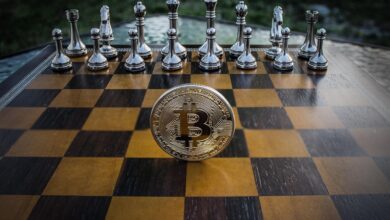
Angel Investor Jason Calacanis Sparks Debate Over XRP’s Regulatory Status
In a notable exchange on the social media platform X, prominent angel investor Jason McCabe Calacanis—renowned for his investments in over 300 startups including Uber and Robinhood—labeled XRP as “a centrally controlled security.” This bold statement triggered a quick and fervent reaction from the cryptocurrency’s advocate community.
Calacanis’s Controversial Comments on XRP
Jason Calacanis, founder and CEO of LAUNCH, which includes the Launch Accelerator and Angel University, shared his critical viewpoint following a January 9 post by Polymarket. The post detailed a dinner meeting between Ripple CEO Brad Garlinghouse and former US President Donald Trump, and cited a 70% probability of a spot exchange-traded fund (ETF) being approved this year.
Drawing from his discussions with early cryptocurrency adopters, Calacanis questioned the legitimacy of XRP as a decentralized digital asset and the potential ramifications of any favorable regulatory decisions. He stated, “XRP is a centrally controlled security — is that even a question for anyone here?”
Calacanis argued that if the SEC were to allow XRP to trade similarly to Bitcoin, it would render securities law ineffective, creating chaos in the financial markets. He warned that a flood of startups, funds, and opportunists might exploit this situation by offloading their coins on unsuspecting retail investors while gradually selling off their controlled shares.
Calls for Investor Restrictions
To mitigate potential market volatility, Calacanis advocated for limiting trading to accredited or “sophisticated” investors, asserting that such measures would ensure participants are informed about the inherent risks. He emphasized, “That kind of chaos is NOT a good idea for America because the world believes we have stable and controlled markets — and they’re willing to park and invest their money with us.”
Moreover, he proposed a “sophisticated investor test” for XRP trading, suggesting that individuals passing this test would be better equipped to understand the risks associated with investing in such projects.
Community Pushback from XRP Supporters
The XRP community swiftly countered Calacanis’s assertions, disputing his description of the digital asset and highlighting the network’s operational framework. A user identified as Vet (@Vet_X0), who describes themselves as a dUNL validator, argued that XRP functions similarly to Bitcoin as a neutral, counterparty-free asset.
Vet elaborated, “XRP and Bitcoin are the same in the sense of being a neutral, counterparty-free entity that operates on decentralized, open-source code. The primary distinction lies in their block production methods. The XRP Ledger employs a consensus protocol, while Bitcoin uses mining. Currently, there are nearly 1,000 nodes and hundreds of validators maintaining the XRPL.”
Another user, brandon (@BlueFoxAlaska), reminded Calacanis of existing court rulings regarding the asset’s classification, asserting, “There have been court rulings, Jason. Very clear. Court rulings. XRP is not a security. At this point, it’s evident you are aware of these facts, yet enjoy the antagonizing. There must be a personal vendetta between you and Brad Garlinghouse … what’s the tea?”
Ongoing Debate Over XRP’s Regulatory Classification
Calacanis’s comments have once again brought to light the ongoing debate regarding XRP’s regulatory status and its adherence to decentralized principles. Despite a US court ruling in the Ripple case clarifying that XRP is not a security, the discourse continues, particularly within the Bitcoin “maximalist” community.
As of the latest update, XRP is trading at $2.64.
“`







